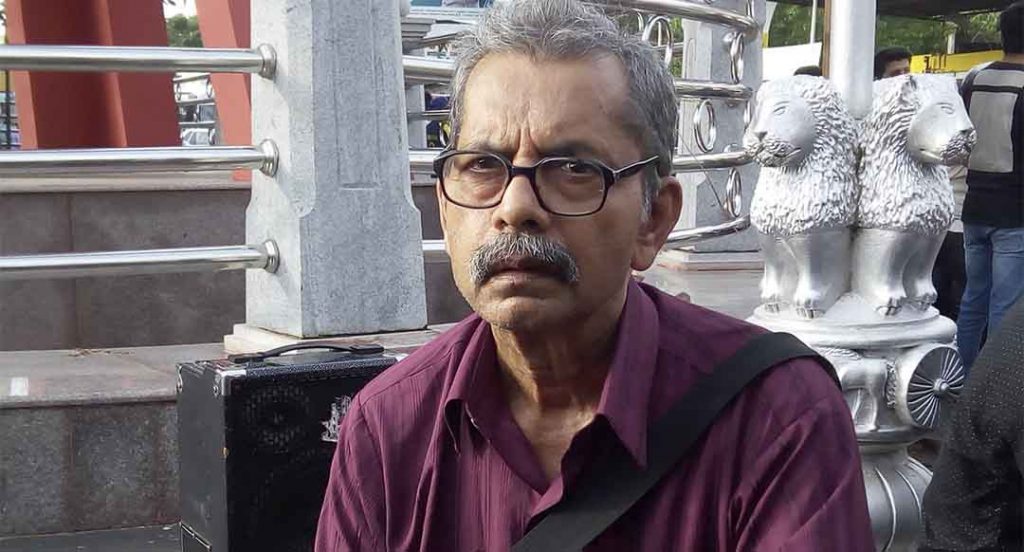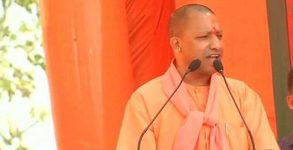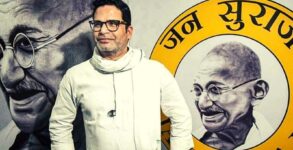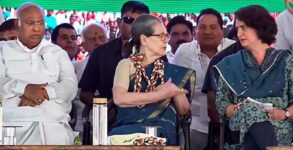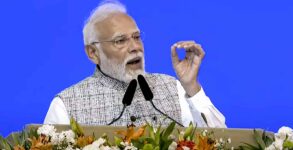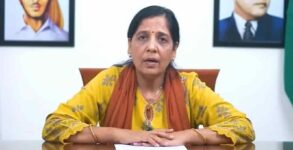Udupi: Marking the 50th anniversary of Kilvenmani massacre, Dalit writer and activists G Rajashekhar has slammed the media for ignoring the serious issues related to Dalit atrocities in India. Rajashekhar stated that media has been ignorant in covering the intolerance against Dalits and minorities.
District units of Karnataka Komu Souharda Vedike and Dalit Damanitara Swabhimani Horata Samiti have organised a meeting to mark the golden jubilee celebration to one of the biggest atrocities against Dalits that took place on December 25, 1968.
On that Christmas night forty-four Dalits, mostly women, and children were burnt alive in an ugly case of caste violence. Twenty women, 16 children, and five aged men were charred to death in the carnage.
Speaking at the event Rajashekhar said that the Dalits were working as farm labour in the land of landlords in Kilvenmani village in Tamil Nadu for daily wages. Later these landless workers organized themselves under the Communist Party of India (Marxist) and started demanding wages as per the work. This infuriated the landlords and aggravated the clashes and a landlord’s agent was killed. As a result, the landlords of the area launched carnage against the entire village. Within minutes the whole village was destroyed and some men, women, and children took refuge in a small hut. The attackers set the house on fire, burning all those inside to death. This incident is known as the Kilvenmani Massacre, he said.
Rajashekhar further stated that there was an increase in authoritarian tendencies in the country. Social activists who are trying to raise their voice against such injustice are being silenced. They are being arrested by police and often tortured by them. He also reminded of the Ishrat Jahan encounter and Haren Pandya murder case and said that it is not possible to be brushed away and forgotten.
The status of anti-Dalit violence is no different. The major incidents of persecution and massacre of Dalits; 1968 Kilveni Massacre, 1997 Melavalavu massacre, 2012 Dharmapuri anti-Dalit violence, 2013 Marakkanam anti-Dalit violence (All in Tamil Nadu), 1985 Karamchedu massacre, 1991 Tsundur massacre (All in Andhra Pradesh), 1996 Bathani Tola massacre, 1997 Laxmanpur Bathe massacre (All in Bihar), 1997 Rambai Killings, Mumbai, 2006 Khairlangi massacre, 2014 Javkheda Hatyakand (All in Maharashtra), 1999 Bant Singh killing in Punjab, 2000 caste persecution in Karnataka, 5 Dalits beaten/burnt to death for skinning a dead cow in 2006, 2011 killings of Dalits in Mirchpur (All in Haryana), 2015 anti-Dalit violence in Dangawas (Rajasthan) are among the scores of atrocities of Dalit persecution.
It was the duty of media to highlight such important issues, said Rajashekhar.
Interestingly, in almost all these cases perpetrators are yet to be identified or prosecuted. Even if identified the prosecution rate has never exceeded 20%.
The Vice-President of Karnataka Komu Souharda Vedike K Phaniraj said that while the atrocities against the Dalits are on the rise, the conviction rate was negligible.
Dalit and minority perpetrators of violence are efficiently put on trial by constituting special investigation teams and punished by fast track courts. But when the victims are Dalits or minorities no such urgency is shown and in such cases, the government is seen playing the game of ‘commission-commission’ said Shyamraj Birthi who was participating in the golden jubilee celebration.
However, in the subsequent trial, the landlords were convicted in this case and ten of them were sentenced to 10 years in jail in 1970.
1975, the Madras High Court acquitted the landlord quashing the Nagapattinam district court judgment, which had awarded them 10 years of prison terms. The main accused in the case was killed in a revenge attack in 1980, 12 years after the incident.
Also read:
70 Dalit families escorted out of village in Rajasthan
Rapur Dalit atrocity: Hyderabad HC issues notices to DGP, Chief Secretary
Why some Dalit voices are calling #MeTooIndia non-inclusive?

